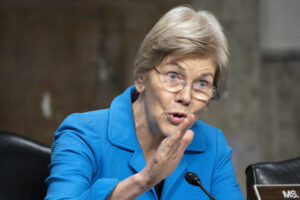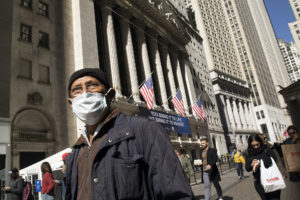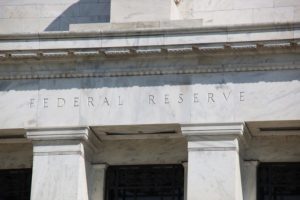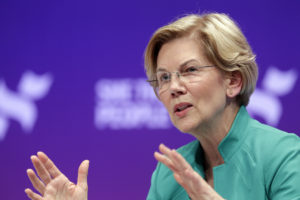U.S. Loses Its Grip on Europe
Military and economic disasters have caused Europeans and European governments to view the United States in a new, unflattering light.PARIS — Events since the beginning of August have made a deep impression on West European perceptions of European possibilities and European-American relations, now and in the future. Accustomed to 60 years of deference to Washington’s leadership (and sometimes its intimidation), Europeans justified this to themselves by the overall success of the American economic system, into which they were drawn by the Marshall Plan following the Second World War, by the immense development of transatlantic trade and financial integration and, since the 1990s, by globalization.
Their political subordination also had a wartime and postwar origin, reinforced by American patronage of the European Union, the insecurities of the Cold War, NATO, and simple political inertia and fear of destabilizing change. Most important has undoubtedly been the profound loss of self-confidence and the crippled ambition inflicted upon European civilization ever since the uncontrollable bloodletting of the First World War. Americans, isolated from all that, perhaps knew better how to run the world.
The United States, as Richard Holbrook observed several years ago, became and has remained in certain respects “a European power” ever since the Second World War. Europeans have often grumbled, and Charles de Gaulle during his 1950s presidency successfully re-established French political and strategic autonomy. But France’s critical position versus the U.S. has had relatively little serious consequence except by de-legitimating, so to speak, the Bush administration’s invasion of Iraq in 2003, forcing Washington to give up the attempt to win U.N. Security Council approval for that war.
That was six years ago, and Nicolas Sarkozy, when elected France’s president in 2007, proclaimed his admiration for the U.S. and his intention to restore France to full NATO membership. But since then, much political and financial drama has occurred.
Europeans and European governments alienated from America’s Iraq and Palestine-Israel policies, offended by U.S. use of torture and illegal imprisonment, and now being drawn by NATO toward the intractable Afghanistan-Pakistan tragedy have become increasingly hostile to military involvements at America’s side. Whatever their doubts, though, America’s best friends in Europe this year mostly convinced themselves that Barack Obama was sure to be elected president, and that as Americans once sang of the Democratic presidential candidacy of the unlucky Alfred E. Smith in 1928, happy days will be here again.
The Georgia fiasco in August, resolutely but unconvincingly rationalized as unprovoked Russian aggression by American supporters of further NATO expansion, confirmed doubts about American foreign policy judgment. While George Bush stayed at the Olympic Games, Sarkozy, current president of the European Union, immediately flew back to negotiate with Russia a cease-fire in Georgia, the stationing of European Union observers, and the outlines of a lasting settlement.
But political mistrust proved easier to discount than mounting signs of American government and financial community incompetence, precipitating the still unstanched American and global credit crisis. No end to the international crisis seems near as bank bankruptcies and emergency government financial interventions continue. But in these circumstances, foreigners could see little in Washington but confusion and incompetence.
Treasury Secretary Henry Paulson, recently of Goldman Sachs, appeared to have been placed in charge of the U.S. government. He first recommended that the financiers who created the crisis be given $700 billion in public money to write off their own companies’ bad debts. Congressional insurrection stopped that.
A new plan was offered, stuffed with electoral “earmarks” for Congress members. Paulson named a young Goldman protégé, a recent business school graduate, to take charge of who would receive the rescue funds. The Federal Reserve chairman seemed out of the loop. President Bush (I believe it was Gail Collins of The New York Times who said this first) popped out of the White House once a day, as from a cuckoo clock, to make an announcement no one paid attention to.
In these circumstances, some Europeans seem to have decided that the postwar era of American leadership is over. British Prime Minister Gordon Brown temporarily nationalized British banks, took control of them, fired some of their executives, and refinanced them. Sarkozy immediately invited Brown (not a member of the Eurogroup), Angela Merkel and the other European chiefs who are Eurogroup members to Paris to agree to more or less the same policy, thus creating the framework for a (hitherto unthinkable) European economic government.
Washington then tried to copy the European program, but on free-market principles (no socialism in America!), calling in the top American banks and giving them money for preferred shares, with results as yet unknown.
The factor of uncertainty in Europe is that in January the Czech Republic takes over the EU presidency, and the Czech president and prime minister dislike the European Union.
Some have suggested that the EU somehow contrive to keep Sarkozy on, with him and Merkel in charge. Perhaps the Irish could be persuaded to take back their veto of a European constitution so that a permanent president could be elected before January. But that is unlikely. At least a year of leaderless Euro-American drift seems ahead.
Visit William Pfaff’s Web site at www.williampfaff.com.
© 2008 Tribune Media Services, Inc.
Your support matters…Independent journalism is under threat and overshadowed by heavily funded mainstream media.
You can help level the playing field. Become a member.
Your tax-deductible contribution keeps us digging beneath the headlines to give you thought-provoking, investigative reporting and analysis that unearths what's really happening- without compromise.
Give today to support our courageous, independent journalists.






You need to be a supporter to comment.
There are currently no responses to this article.
Be the first to respond.